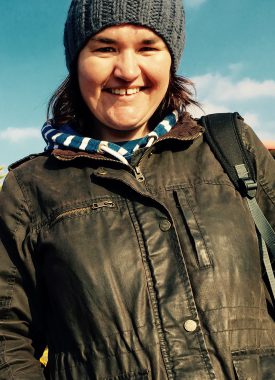Dr Helen Smith: We’re only human

I’m only human, I’m a GP. Take a look in the mirror, and what do you see?
Three years ago I saw the frightened mother of a patient. My previously well two-year-old son woke unable to walk. Throughout the ensuing year of tests and treatment I came to understand how important a few throwaway comments can seem, and what patients want from a doctor in times of crisis.
Day one. Jack is in the local district general hospital. The doctor who examines him turns to me and says, ‘do you think he’s putting it on?’ I am so gobsmacked I am stunned into silence.
Day three. No-one knows what’s wrong with Jack. Today we meet a new consultant; he listens, and is kind and thorough. He inspires trust and confidence. The following day he tells us Jack probably has a form of encephalitis and will be ‘up and running about’ in a couple of weeks. I relay this information to frantic grandparents; we all shed a tear with relief.
Day five. We are now on a paediatric neurology ward in London. The neurologist diagnoses Jack with Dancing Eye Syndrome. He says it is very rare and ‘to google it’.
I do so. The information is devastating. I stop googling after that. The consultant tells us Jack has a 50% chance of having cancer – but we were not to focus too much on this as it will not be a ‘major issue’. How can your child having cancer not be a major issue? How bad was this other thing if cancer is a minor blip?? We spend the day isolated in our side room, barely holding it together. When the doctor comes that evening and starts discussing the next battery of tests, I can’t stop the tears from falling. ‘Why are you crying?’ he asks.
Week six. We are back in hospital. Jack is having another scan to check for tumours. The nurse shows us round. ‘This is where Jack will have his chemotherapy,’ she says. Just like that. It’s so common place to them, it’s that normal. ‘My son’s just here for a scan,’ I reply. She smiles kindly and continues the tour.
One year on. Jack has completed his treatment. Today I write a very belated thank you card to the consultant in the local hospital, the doctor who told us Jack had encephalitis. Was his diagnosis correct? Not really. So why am I saying thank you? Because when we were at our lowest point he was attentive and compassionate, listened and spoke thoughtfully, and allowed us a glimmer of hope.
As doctors we strive to make the correct diagnosis, but being a patient I found empathy and sensitive communication to be just as important as getting it right- something easy to overlook when we are under pressure. A simple smile and thoughtful words are appreciated in times of crisis. Science should always go hand in hand with humanity.
We’re only human after all.
Dr Helen Smith is a GP in Maidstone, Kent
Click here to read all the entries to Pulse’s annual writing competition ‘Turning Tables’









